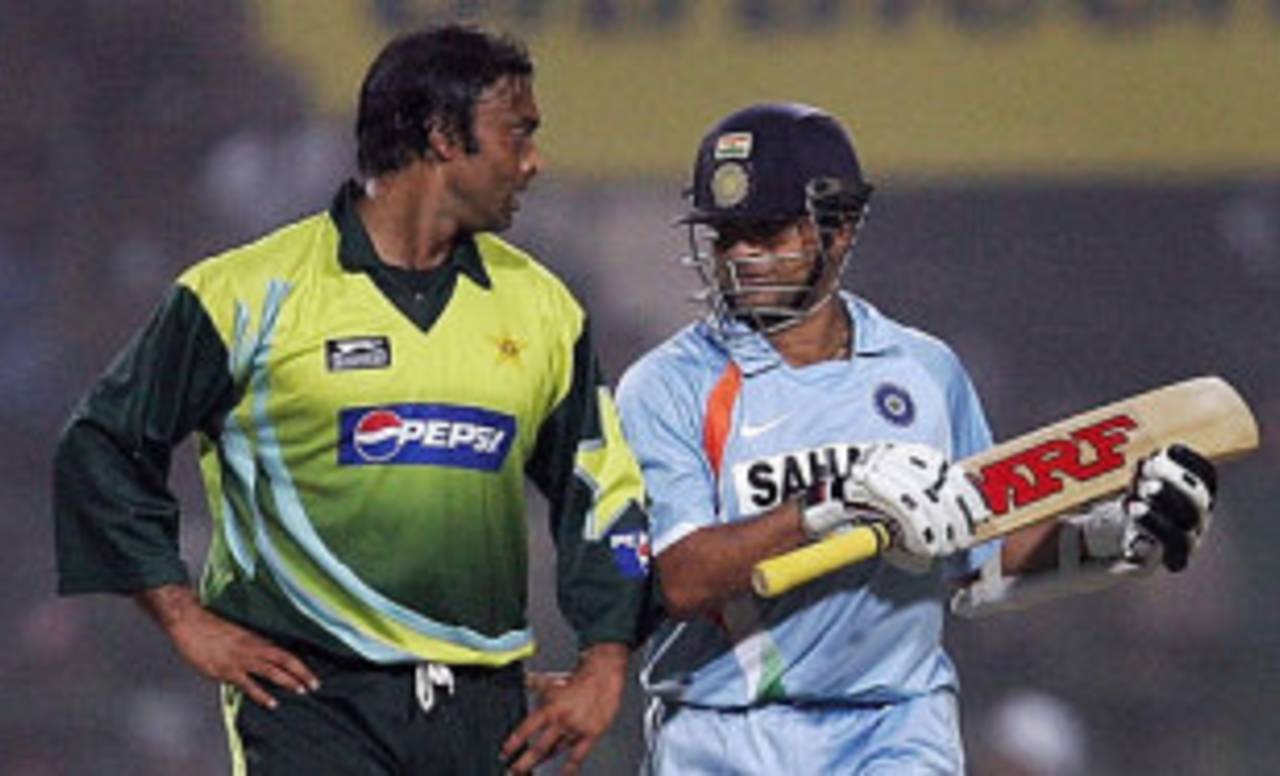True bravery and faux bravery: A little primer
I have not read Shoaib Akhtar's autobiography, and given the current prioritization of my book-buying budget, it is unlikely I will buy a copy
Samir Chopra
Feb 25, 2013, 11:24 PM

Courage is the ability to overcome fear, not the absence of fear • AFP
I have not read Shoaib Akhtar's autobiography, and given the current prioritization of my book-buying budget, it is extremely unlikely I will buy a copy (I might borrow a friend's copy for a chuckle or two though). I have, however, heard a great deal about this particular literary production, because some passages in it, and the reaction to them, have served to highlight a very common confusion about the notion of courage.
Unless you were a cricket fan denied any access to media over the past week or so, you know that Akhtar allegedly penned a few lines in which he suggested that Sachin Tendulkar might have been, shall we say, a tad apprehensive when facing Akhtar. You would also know that a fit of outraged reactions to these sacrilegious lines has resulted in book-release events being cancelled and considerable ire (to put it mildly) being sent Akhtar's way.
I have read the offending lines and they seem rather mild to me. But let us suppose that Akhtar had written what his most fervent critics imagined him to have written. Let us, that is, imagine Akhtar had written something along the following lines:
Many people think Sachin Tendulkar is the greatest batsman of all time. But I always thought he was a coward. Whenever he faced fast bowling, he was scared; I could see it in his eyes. His legs were shaking, his eyes were wide with fear; he never, ever liked playing fast bowling.
Does that sound suitably damning? Does that condemn Tendulkar as a lily-livered chicken with a yellow streak "lacking moral fibre"? (And would that correspondingly, make Akhtar into a true mensch, one capable of reducing grown men to a quivering mess?)
I don't think so. My reaction to reading that particular set of lines would be roughly something along the lines of "Wow, what a brave man. Even though he was scared witless by fast bowling, he kept on playing top-level competitive cricket for twenty years, and managed to score 99 centuries and some 25,000 runs. What a mensch! He knew he was going to keep on facing fast bowling and yet he kept on putting himself into an intensely uncomfortable situation. Gee, I wouldn't do that for a million dollars".
The problem here is quite simple. Akhtar imagines that by pointing out evidence of fear or discomfort in the face of physical danger, he has impugned someone's courage (and correspondingly patted himself on the back for being able to induce that fear; similarly, I suppose someone threatening another person with a deadly weapon might feel very brave). Those reacting to Akhtar suffer from the same confusion. But courage is not the inability to feel fear or the absence or fear; it is the ability to master felt fear.
An inability to feel fear when facing a threat that can cause serious injury or death does not indicate bravery; it merely indicates a neurological disorder, a dysfunctional apparatus that does not do justice to our evolutionary heritage. True courage or bravery is the ability to overcome that entirely rational fear and to overcome it in order to achieve the objective at hand. A little reading of memoirs penned by mountaineers, military heroes, and adventurers of all stripes might convince those who imagine that a brave person is some sort of automaton who blithely and idiotically subjects himself to danger. We respect these men and women because while they feel the fear that all of us do, they are able to get over and on with it.
I have no desire to face fast bowling at the top-levels of cricket. And even if someone told me that I could wear pads, helmets, gloves, chest and elbow guards, and count on facing spinners and 'medium-pacers" occasionally, I would still not do it. I took high school physics and I'm perfectly capable of carrying out the calculations pertaining to impact forces generated by a cricket ball; what those numbers can do to human cartilage and bone is a little gruesome. Any man that can put himself into a situation where he might have to encounter them has my respect. He should have Akhtar's too.
Samir Chopra lives in Brooklyn and teaches Philosophy at the City University of New York. He tweets here